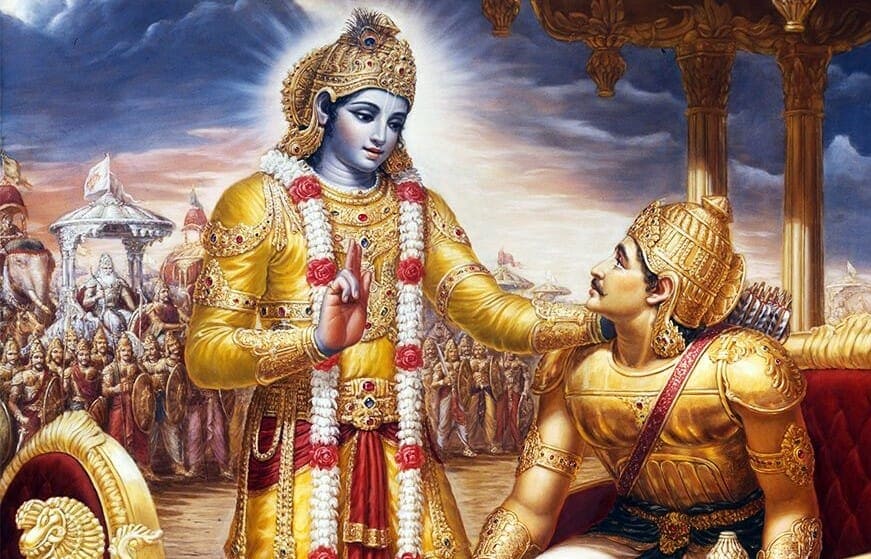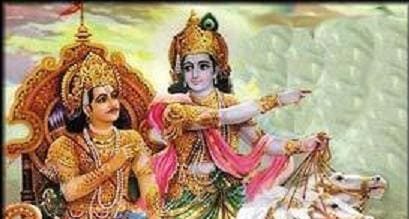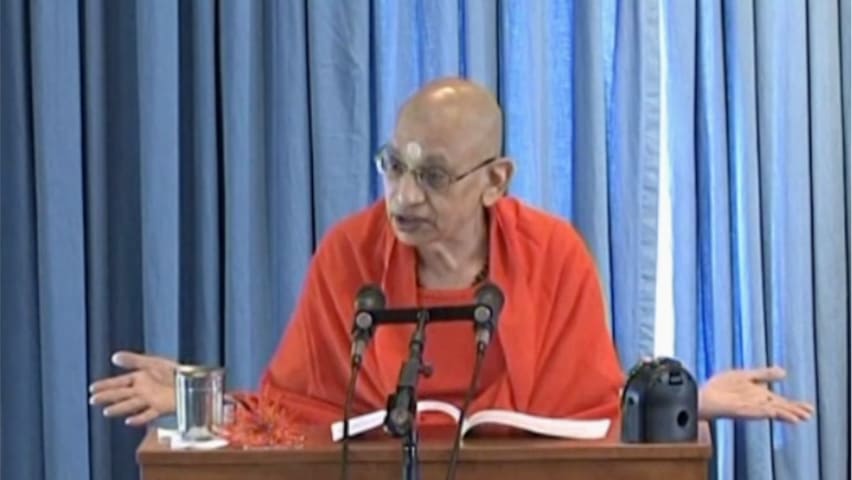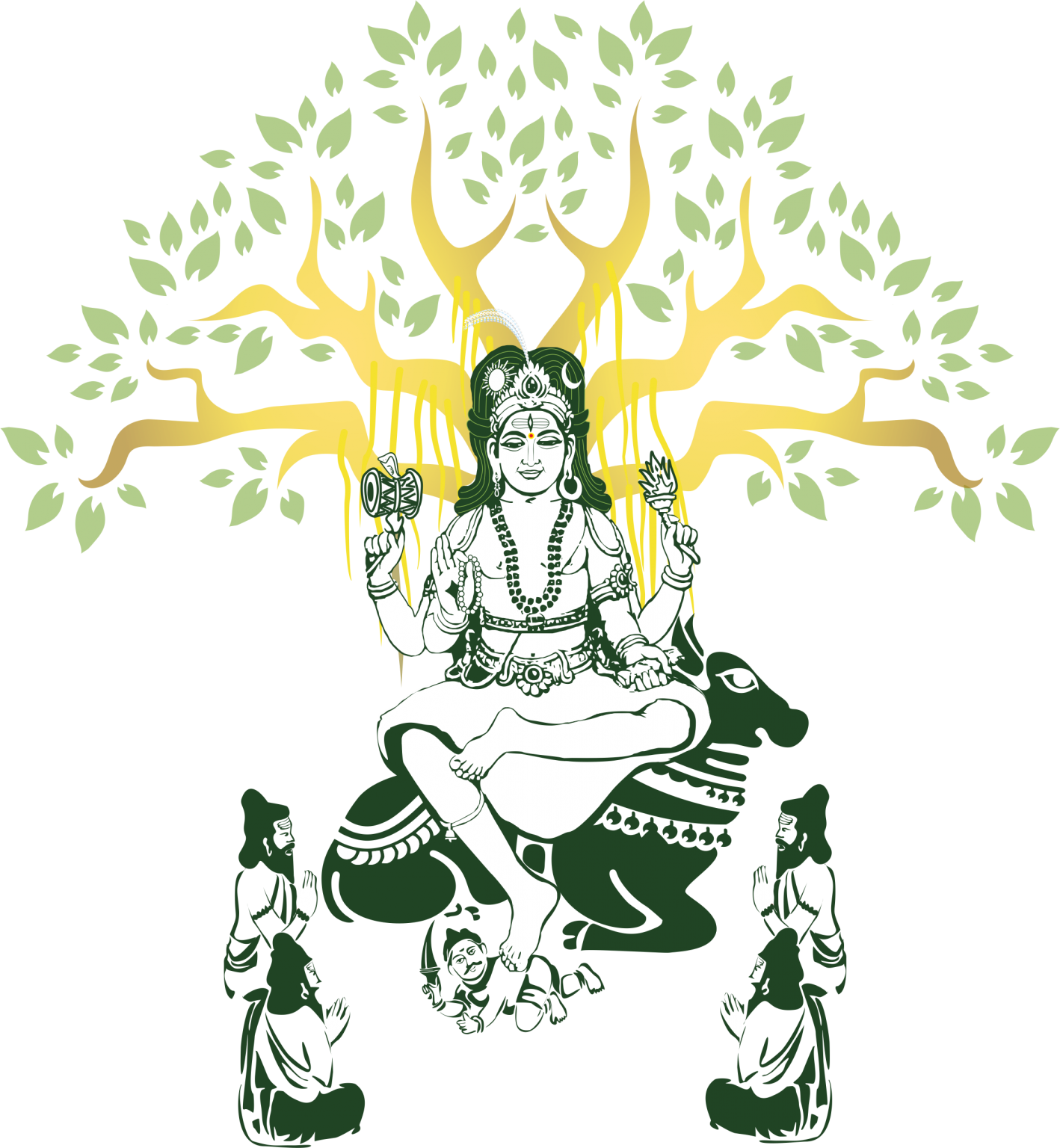Swami Dayananda Saraswati
Published with detailed commentary in the 16th Anniversary Souvenir 2002 of Arsha Vidya Gurukulam.
Translation and meaning from Bhagavadgītā Home Study Course, Arsha Vidya Gurukulam, 1999.
The two-fold committed life-styles
loke ’smin dvi-vidhā niṣhṭhā purā proktā mayānagha
jñāna-yogena sāṅkhyānāṁ karma-yogena yoginām || 3-3||
anagha – Oh! Sinless One; asmin – in this; loke – world; dvividhā – two-fold; niḥṣhā – committed life-styles; purā – in the beginning; mayā – by me; proktā – was told; jṣāna- yogena – in the form of the pursuit of knowledge; sāṅkhyānāū – for the renunciates; karmayogena – in the form of the pursuit of action; yoginām – for those who pursue activity
Oh! Sinless One, the two-fold committed life-style in this world, was told by Me in the beginning û the pursuit of knowledge for the renunciates and the pursuit of action for those who pursue activity.
What is to be known is Brahman
jñeyaḿ yat tat pravakṣyāmi yaj jñātvāmṛtam aśnute |
anādi mat-paraḿ brahma na sat tan nāsad ucyate || 13-12||
jṣeyam yat – what is to be known; tat pravakṣyāmi – that I will tell clearly; yat jṣātvā – knowing which; amśtam – deathlessness; aśnute – one gains; anādimat – that which has no beginning; param – limitless; tat brahma – that Brahman; na sat – is not existent; na asat – and not non-existent; ucyate – is said
What is to be known, that I will tell clearly, knowing, which one gains deathlessness, that Brahman, which, it is said, has no beginning, is limitless, neither existent (as an object) nor non-existent.
Brahman exists in the form of all beings
sarvataḥ pāṇi-pādaḿ tat sarvato ’kṣi-śiro-mukham |
sarvataḥ śrutimal loke sarvam āvṛtya tiṣṭhati || 13-13||
tat – that; sarvataḥ pāṇipādam – the one who has hands and feet on all sides; sarvataḥ akḥi-śiromukham – the one who has eyes, heads and mouths (faces) on all sides; sarvataḥ śrutimat – the one who has ears on all sides; loke – in the people; sarvam āvśtya – pervading everything; tiḥṣhati – it remains
That (jṣeyam brahma), the one who has hands and feet on all sides, the one who has eyes, heads and mouths (faces) on all sides, the one who has ears on all sides in the (bodies) of the people remains pervading everything.
Īśvara is the essence of all beings (e.g., strength and desire)
balaṁ balavatāṁ chāhaṁ kāma-rāga-vivarjitam |
dharmāviruddho bhūteṣhu kāmo ’smi bharatarṣhabha || 7-11||
ca – and; bharatarḥabha – O foremost in the clan of Bharata! (Arjuna); balavatāū – of the strong people; kāma-rāga-vivarjitam – that which is free from kāma, desire, and rāga, attachment; balam – the strength; bhūteḥu – in the beings; dharma-aviruddhaḥ – that which is not opposed to dharma; kāmaḥ – desire; aham asmi – I am
And in the strong, I am the strength that is free from desire and attachment. In all beings, I am the desire that is not opposed to dharma, O the foremost in the clan of Bharata!
Karma-yoga: Manage your likes & dislikes through your free will
indriyasyendriyasyārthe rāga-dveṣhau vyavasthitau |
tayor na vaśham āgachchhet tau hyasya paripanthinau || 3-34||
indriyasya-indriyasya-arthe – with reference to the object of every sense organ; rāga- dveḥau – attachment and aversion; vyavasthitau – are there; tayoḥ – of these two; vaśam – spell; na – not; āgacchet – should come under; hi – because; tau – these two; asya – oneÆs; paripanthinau – enemies
There is attachment and aversion with reference to every sense object. May one not come under the spell of these two because they are one’s enemies.
Karma-yoga: Īśvara is the author of the results of action
karmaṇy-evādhikāras te mā phaleṣhu kadāchana |
mā karma-phala-hetur bhūr mā te saṅgo ’stvakarmaṇi || 2-47||
karmaṇi – in action; eva – only; te – your; adhikāraḥ – choice; phaleḥu – in the results; mā kadācana – never; karma-phala-hetuḥ – the cause of the results; mā bhūḥ – do not be; akarmaṇi – in inaction; te – your; saṅgaḥ – attachment; mā astu – let it not be
Your choice is in action only, never in the result thereof. Do not be the author of the results of action. Let your attachment not be to inaction.
Karma-yoga: Doing one’s duty is worshiping the lord
yataḥ pravṛittir bhūtānāṁ yena sarvam idaṁ tatam |
sva-karmaṇā tam abhyarchya siddhiṁ vindati mānavaḥ || 18-46||
yataḥ – from whom; bhūtānāū pravśttiḥ – (is) the creation of the beings; yena – by whom; sarvam idam – all this; tatam – is pervaded; tam – him; svakarmaṇā – through one’s own duty; abhyarcya – worshipping; mānavaḥ – the human being; siddhim – success; vindati – gains
Through one’s duty, worshiping him from whom is the creation of the beings, by whom all this is pervaded, a human being gains success.




